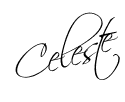These are very good, but also very personalized questions. One person loves lists and bullet style notes, while another loves to write in complete sentences with perfect punctuation and paragraphs that read like a good novel.
A person may start in their early years with one of two sentences about a book and end up in Scholar and Depth Phase writing a short thesis. Or, a student may be a combination of the two with bullet style notes for quotes and topics you want to remember from an informational book and longer, paragraph style reviews of books for sharing on a venue like Goodreads. (A link to my Goodreads reviews.)
...it just really depends on you...your preferences and where you are in the Phases of Learning.
People are always looking for examples. I do to! I like to see examples. So, here are some from my personal journals.
My Journals - Depth Phase
 |
| Just a few... |
Right now, I am using 4 regular journals and a couple of "item specific" journals, all of them numbered. I am also making a master list of what is included in each journal. Rachel DeMille says that they leave a few pages blank in the front of each journal to add a table of contents as they fill up the journal. I didn't start out that way and so I created the master list in a blank notebook and list the journal # and page number of each item.
I started with the Master List as part of my binder (back when it was a short list), but moved it to it's own spiral notebook when it started getting pretty thick. I also need to print all of my book reviews on Goodreads and keep them in a binder for the day when technology ends (depends on your point of view here to if you feel this is necessary).
A list of my current journals:
- Fiction reading
- Non-fiction reading
- Religious reading
- Mentoring - "Student Whisperer Journal"
- Food Storage & Emergency Preparedness
- Marriage (I have a small notebook that I have recorded specific things about being a better wife and mother.)
- Everyday life - personal journal
I have a mixture of how I record my reading epiphanies.
I have some bullet style lists of quotes and topics I want to remember from the book.
 |
| Quotes from "The Jackrabbit Factor" |
I have details of answers to exercises...
 |
| "Student Whisperer" exercises |
I have full book reviews, many of which I duplicate on Goodreads.
I have diagrams of topics discussed...
 |
| Notes from a lecture on Child Development & Foundations of Great Education |
Digital Journaling
Technology has a lot to offer as well. I personally use Evernote and I have also used SpringPad. Both are free and come in PC and App formats. Both have unique things to offer. For journaling purposes, I find that Evernote has the most to offer, which is why I developed the Freedom Educator Planner Templates. The planner includes forms for book reviews, lecture notes, etc.
Evernote also prints nicely if you wish to print hard copies for future use or storage.
 |
| Evernote - Books Read 2013 |
I also keep notes of other topics, especially website information that is hard to convey into a paper notebook.
 |
| Evernote - Curriculum Plans and Notes on Books we are studying |
However, using a digital system can be in any method you wish. Any software that allows for typing up the information you want to store will work.
The beauty of systems is YOU decide what works for you and just start recording your information. It is not hard and it does not take a long time. Just start something and adjust as you learn what you like and what works for you. There is no right or wrong...just progressing and growing.

No comments:
Post a Comment